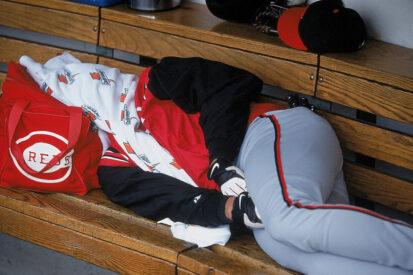In team sports, the only way to reach your goals is to do so as a team. Sure, you, as an individual athlete, can set goals for yourself, but ultimately you reach those goals for the significant purpose of helping your team win. Being a good and supportive teammate not only can help give you a sense of fulfillment but can help contribute to a positive team dynamic and help your team achieve success. If the team succeeds, you will succeed. Being a good team requires a combination of skills, and there are several qualities and behaviors you can work on. Here are some key factors that can help you be a good teammate.
- Be Supportive: Support goes a long way. Your teammate might be the exact opposite when you are white-hot at the plate or on the mound. Pick them up in these moments. Find ways to bring joy around them. Be a good listener and offer emotional support. There will come a time when you’re struggling, and you’ll need the same in return. Providing support to your teammates can go a long way to building trust and respect with all of your teammates.
- Show Respect: The saying always goes, “treat others how you would want to be treated.” Respect is a crucial need in any team environment. Listen to your teammates’ opinions, decisions, and feelings. Don’t just jump to judgment even if you disagree with them. Find ways to come to a common ground and respect those you go out and grind with every day.
- Positive Attitude: We have talked about how your attitude is the one thing you can control each day. Bringing a positive attitude to the field can be infectious, and your teammates will take notice. Find ways to maintain that positive attitude even when things are not going well.
- Be Adaptable: Being open to change and adapting to new situations is critical. Not everything is about you in the team environment, and being a good teammate sometimes requires flexibility and being willing to adjust your role for the team’s benefit. Know that change can and will happen, and often can be for good in the long run.
- Work Ethic: You also can control how hard you work. Show up on time, work hard, and dedicate yourself to improving your skills. Your teammates will catch on when you set a good example.
- Accountability: Don’t just hold your teammates accountable. Make sure to take responsibility for your actions. We are human. Mistakes will happen. Own up to them and find ways to learn from them. Don’t hide from your mistakes. You will gain respect from the rest of your teammates by just being accountable.
As one of our Champions School podcast guests, Will Klein of the Kansas City Royals, has said in the past, “Be the kind of guy your teammates want to go play for.” Being a good teammate requires communication, support, work ethic, respect, and all the other traits mentioned above. Working on these behaviors and bringing these attitudes to the field will help you grow, and it will help you develop excellent relationships with your teammates and coaches.
What type of attitude do YOU bring to the field each day? What type of teammate are you on and off the field?
— Major League University (@MajorUniversity) August 22, 2022
Kansas City Royals pitcher Will Klein discusses the importance of being the guy your teammates want to go play for ⤵️
pic.twitter.com/r03rJ57gKt








